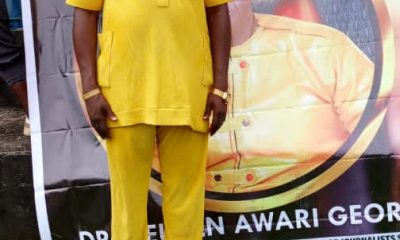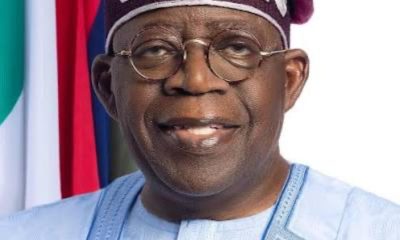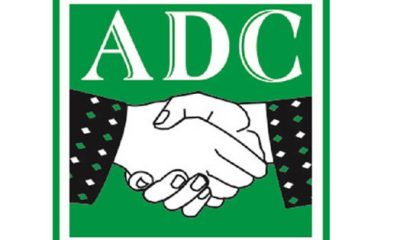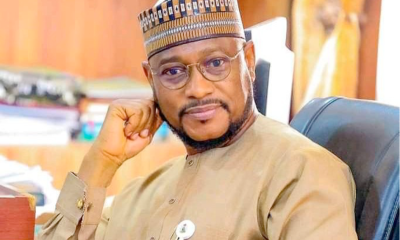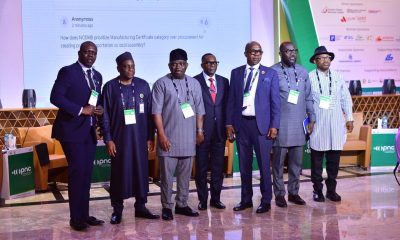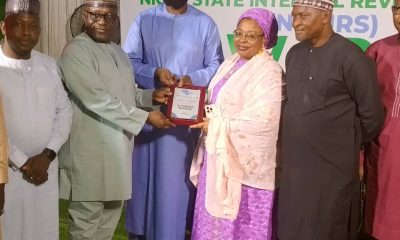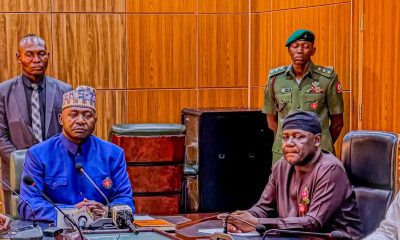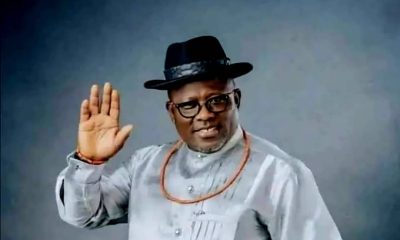General News
Humanitarian Crises: Why Nigeria Needs Collective Response – UN Rep, Fall … Identifies Obstacles, Solutions to Humanitarian Interventions
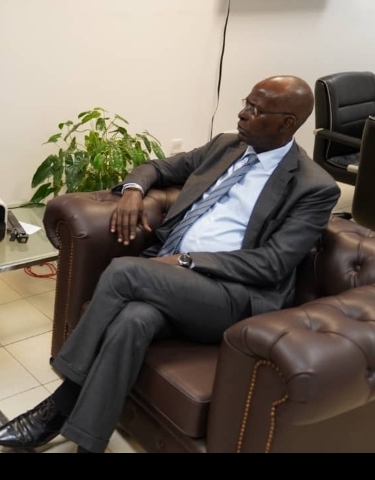
General News
Insecurity: APC Govs meet in Lagos, resolve to forestall banditry attacks

Apparently disturbed by the ravaging attacks of bandits in some parts of the country, Progressive Governors’ Forum have resolved to strengthen local security towards preventing possible attacks that could truncate the development in their states.
The governors stated that strengthening community-based security initiatives and better intelligence gathering from the grassroots were identified as major antidote to gunmen attacks across the country.
The communique issued by the governors on Saturday after a two-day meeting in Lagos where security, economy, and social welfare issues were reviewed with the aim to address hurdles that may affect growth and development in the country.
The communique was read by the chairman of the Forum, Governor Hope Nzodimma of Imo State.
Governors in attendance attendance included: Kebbi, Dr. Nasir Idris, Edo, Senator Monday Okpebholo, Ogun, Dapo Abiodun, Ekiti, Biodun Oyebanji, Ondo, Lucky Aiyedatiwa, Sokoto, Ahmad Aliyu, Akwa-Ibom, Pastor Umo Eno, Delta, Sheriff Oborevwori, Enugu, Peter Mbah, Kaduna, Uba Sani and Katsina, Dikko Umar.
The host Governor, Mr Babajide Sanwo-Olu said, “The engagement provided an opportunity to review the nation’s current trajectory, deepen coordination among progressive governors, and reaffirm the Forum’s unwavering support for the Renewed Hope agenda of His Excellency President Bola Ahmed Tinubu GCFR.
According to the governors on platform of the All Progressives Congress (APC), the decision to embark on strengthening local security architecture was taking after a review of the security situation across the country particularly as it affects each states.
The Forum reviewed the security situation across the country and expressed appreciation for the improved coordination between federal, state and local security structures, as well as the courage and sacrifices of security agencies and community volunteers.
The Forum commended the President for the ongoing re-engineering in the security architecture of the country.
Governors reiterated that safety of lives and property remains a non-negotiable obligation of government.
The PGF resolved to continue strengthening community-based security initiatives, intelligence gathering, conflict-prevention mechanisms and support for victims of violence and disaster.
The Forum underscored the importance of social cohesion, inter-faith harmony and inter-ethnic understanding, and urged all leaders to use their voices and platforms to promote unity, moderation and respect, while isolating criminality and hate speech in all its forms.
“The meeting served as an important platform for aligning state-level priorities with national reforms, reinforcing the centrality of citizens, citizens’ welfare in governance, and consolidating the Forum’s shared vision of people focused and development-driven leadership at all levels of government.
“The Forum undertook a broad review of the political, economic, and social environment in the country.
“Governors reaffirmed that the ultimate purpose of every reform must be to improve the lives of Nigerians, protect their dignity, and expand opportunities for all, rural and urban, youth and elderly, women and men, workers, entrepreneurs, and vulnerable groups alike.
“The Forum noted ongoing efforts at food security, power sector improvement, transport and infrastructure upgrades, social investment, and support for productive enterprises, and pledged to align state policies to maximise the benefits of these reforms for citizens in every ward and in our communities.
The Progressive Governors Forum resolved to intensify state-level interventions in areas such as food production and distribution, support to small and medium-scale enterprises, youth employment, social protection for the poorest and most vulnerable, and targeted relief for workers and low-income households.
“We, the Progressive Governors, are committed to working closely with federal institutions, the National Economic Council and local governments to ensure that things keep improving, that no group is left behind, and that the gains of reforms continue to translate into visible improvement in the quality of life of the people.”
General News
Ministers, NDDC boss bag ‘Excellence in Public Service’ award
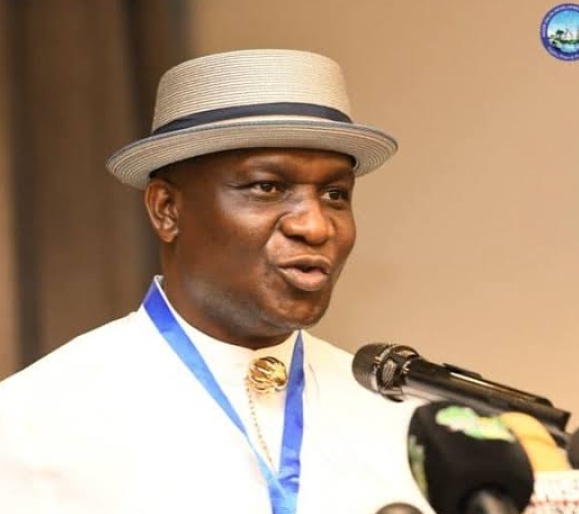
By Magnus Chukwudi, Port Harcourt
The Managing Director of the Niger Delta Development Commission, NDDC, Dr Samuel Ogbuku, has been conferred with the Business Day Excellence in Public Service Award, alongside the Minister of Information and National Orientation, Alhaji Mohammed Idris, and seven other Ministers.
The award was presented to Ogbuku by the Minister of Foreign Affairs, Ambassador Yusuf Tuggar, during the 2025 BusinessDay Public Service Lecture and Excellence Awards in Abuja.
Speaking during the ceremony, the NDDC Chief Executive Officer expressed joy over the award and remarked that it showed that Nigerians appreciated the work the NDDC was doing in Nigeria’s oil-rich region.
Ogbuku stated: “It is a recognition of our hard work all through the year. We thank God for the opportunity of service, and we thank President Bola Ahmed Tinubu for giving us the platform to showcase our ingenuity. He put together a team that has transformed the administration and development of the Niger Delta region.
“We also thank the Minister of Regional Development, Engr. Abubakar Momoh, who has provided us with technical and administrative support. This honour calls on us to do more and reminds us that next year we must redouble our efforts and do better.
“We will not rest on our oars until we satisfy the yearnings of the people of the Niger Delta region and take development to the nooks and crannies of the region as part of the Renewed Hope Agenda of President Tinubu’s administration.”
In his remarks, the Minister of Information and National Orientation, Mohammed Idris, acknowledged the recognition of his ministry’s collective efforts to rebuild public trust and enhance Nigeria’s information ecosystem under the current administration.
“Over the past 2 years, we have focused on redefining Nigeria’s national communication architecture to promote transparency, professionalism, and citizen-centred governance. We have revitalised the national orientation framework, strengthened government-to-citizen communication, and advanced reforms that promote media responsibility, ethical standards, and public accountability.
“The Ministry remains committed to building a more informed, united, and values-driven society. We will continue to strengthen public communication channels and deepen the reforms necessary for a healthier, more transparent information space.”
Giving his impressions on the award to the NDDC Managing Director, the Executive Director, Finance and Administration, Alabo Boma Iyaye, said that the honour would energise the Commission to do more.
He said the award has validated the contributions of the NDDC in driving sustainable development in the Niger Delta. “This recognition and acknowledgement will encourage us to continue contributing to the development of our region and the nation.”
Also speaking, the NDDC Executive Director, Corporate Services, Hon. Ifedayo Abegunde, described the award as a significant recognition for the NDDC. He thanked the BusinessDay newspaper and noted that the NDDC would continue to give back to the communities in the Niger Delta region.
Earlier, in his welcome address, the Publisher of Business Day, Mr Frank Aigbogun, said that the BusinessDay awards were meant to honour functionaries in strategic government positions who demonstrate exceptional performance and leadership.
He noted: “The BusinessDay Public Lecture and Award Series is a veritable platform for thought leaders, policymakers, and business experts to discuss the most pressing issues facing Nigeria’s economy and proffer implementable solutions.”
Aigbogun, represented by the Editor of BusinessDay, Mr. Lolade Akinmurele, said that public service must be more than doing a job efficiently and honestly. “It must be a complete dedication to the people and to the nation.”
” There is no doubt that this year’s Public Service lecture and award, with the theme: Shaping Nigeria’s Economic Future: Navigating Challenges, Unlocking Opportunities”, is very apt, given the current critical challenges the country faces. ###.
General News
FortLugard University berthed in Abuja, Senate Building, Computer Science Faculty’s works begin
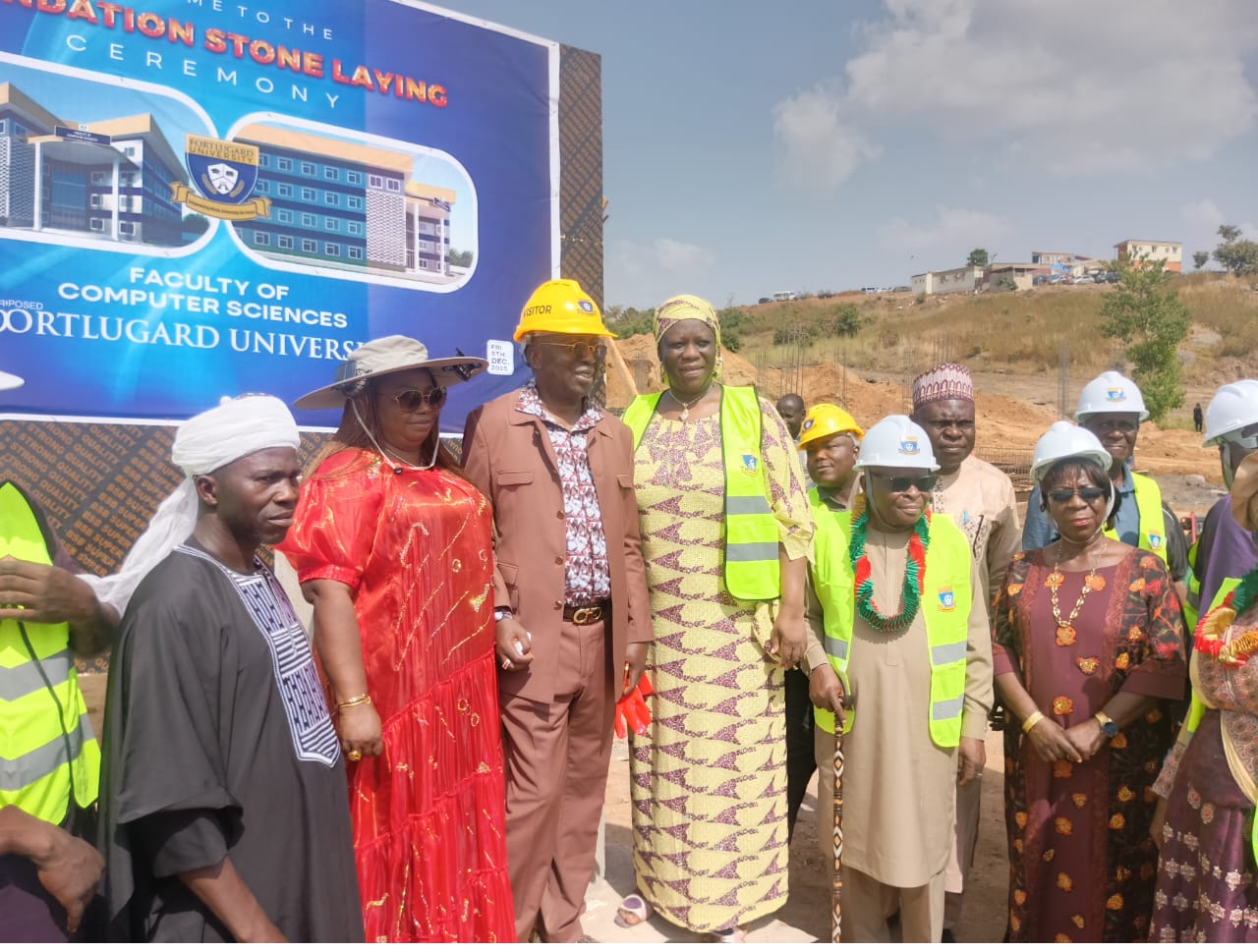
By Abdul-Ganiyy Akanbi
The efforts of the federal government in the educational advancement of the country has received a major boost with the establishment of a new University known as FortLugard University in the Apo District of the Federal Capital Territory, FCT in Abuja.
To ensure full actualization of institution, the foundation stone laying ceremony for the Senate Building and the Faculty of Computer Sciences of the proposed university was performed on Friday at the permanent site in Apo, Abuja.
Former Chief Justice of Nigeria CJN, Justice Walter Samuel Nkanu Onnoghe laid foundation stone for the expansive Senate Building while the Minister of Special Duties and Inter Government Affairs, Honourable Zephaniah Bitrus Jisalo laid foundation for the Faculty of Computer Sciences Building.
Justice Onnoghe in his brief remarks commended the founder and Chancellor of the university, Elder Ogwu James Onoja, a Senior Advocate of Nigeria, SAN for his foresight and courage in venturing into promotion of education in the country.
He said that a country without well educated, vibrant and properly brought up youths through education is doomed.
Special Duties Minister, Jisalo thanked the university founder for establishing it at the FCT adding that apart from creating massive employment, the youths in the territory would have more access to quality education through the university.
He appealed to the host community to jealousy guide and protect the University and its workers because of massive derivable benefits.
Earlier in his speech, the founder and Chancellor of the university, Dr Ogwu James Onoja had said that occasion was not merely a ceremonial gathering but a convergence of vision, faith, and purpose.
He said that it was a day that symbolizes progress and announces steady movement towards establishing a world-class university that wilt redefine excellence in higher education in Nigeria and Africa.
According to him, ‘We began activities on the proposed FortLugard University site with road construction, fencing and excavation.
“Just a few days ago, we laid the foundation of the Ukala School of Engineering and Technology (USET), another major pillar of this great institution, with the foundation stone laid by Emmanuel Ukala, SAN.
‘That landmark event marked the beginning of the physical realization of a long-held dream of Engineering and Innovation.
“Today, we continue that journey. We are not waiting for tomorrow. We are building consistently, deliberately, and strategically, brick by brick, vision by vision.
“FortLugard University is conceived as a transformational institution that goes beyond the traditional boundaries of teaching and learning. It is designed to be an intellectual powerhouse that will produce graduates with the character, competence, and creativity to influence society positively.
“Our vision is to build a world-class university that stands as a beacon of academic excellence, moral integrity, technological Innovation, and global competitiveness; an institution where knowledge is not only acquired but created, applied, and used to advance human progress.
“Our mission captures the heart of our commitment: to deliver cutting-edge academic programmes grounded in values, discipline, and world-class standards; to nurture leaders and professionals equipped with deep intellectual capacity, innovative thinking, and strong ethical values.
“To promote research, creativity, and industry-driven learning that will address local and global challenges; to create an enabling environment where technology, modern infrastructure, and global partnerships drive learning and discovery; to build a campus that Is serene, safe, sustainable, and designed with the future in mind.
“We are not merely constructing buildings, we are constructing destinies. We are raising an institution that will shape the next generation of thinkers, inventors, policy leaders, social reformers, and nation-builders.
“The Senate Building we break ground for today will become the heart of academic governance. It will house the intellectual and administrative and leadership that ensures academic integrity, quality assurance, curriculum development and policy direction.
“Without a credible Senate, no institution can claim the status of a university. This structure will therefore stand as the symbol of academic honour and institutional stability.
“The Foundation Stone of the Senate Building which represents the heart and soul of this institution will upon completion be named after Justice Walter Onnoghe.
“The Faculty of Computer Sciences represents the future of education. The world is advancing rapidly through artificial intelligence, data science, cyber security, software engineering, cloud computing, and digital transformation.
“Nations today are powered not by natural resources alone, but by knowledge, innovation, and technological capacity. This Faculty will become a Centre of Excellence where young minds are trained to innovate, create, and compete globally.
“This university is a monumental undertaking. To achieve a truly world-class institution, we need continued support from government, private sector partners, philanthropists, development agencies, and individuals of goodwill.
“We invite everyone who shares our dream to join hands with us. Let us build a university that will stand as a legacy for generations, an institution that offers opportunities, transforms lives, and advances the progress of our nation.
“Today we plant seeds that will grow into a forest of possibilities. Today, we declare to the world that the proposed FortLugard University is rising strong, bold, and by God’s grace will be world-class”, the Chancellor assured.
-

 Business & Economy4 months ago
Business & Economy4 months agoPC-NCG Issues Disclaimer on Purported Nigerian Coast Guard National Orientation Exercise In Anambra State
-

 Entertainment1 year ago
Entertainment1 year agoJubilation galore as Parishioners of CKC Kurudu celebrate their cultural heritage ….FG should exploit our Cultural heritage to unite Nigerians-Rev Fr Dim
-

 Law & Crime6 months ago
Law & Crime6 months agoICPC pledges to collaborate with FIDA to end Sex for Marks in tertiary institutions
-

 General News1 year ago
General News1 year agoCelebration galore as UDA Successfully Elected New Exco ……I will digitalize processes that will raise UDA to greater height -Comr. Okejiri
-

 General News2 years ago
General News2 years agoReps hold public hearing on FMC Ugwuaji Awkunanaw
-

 Law & Crime5 months ago
Law & Crime5 months agoLegal practitioner raises alarm over threat to his life by CSP Muhammed Abdulkareem
-

 General News1 year ago
General News1 year agoKugbo Hill Tragedy: Trailer Crushes Car, Kills Four and Injures Several Others in Abuja
-

 Politics3 months ago
Politics3 months agoASUU-NDU protest against FG loans, unpaid salaries,Non-Implementation of agreements …..says loans is generational slavery



